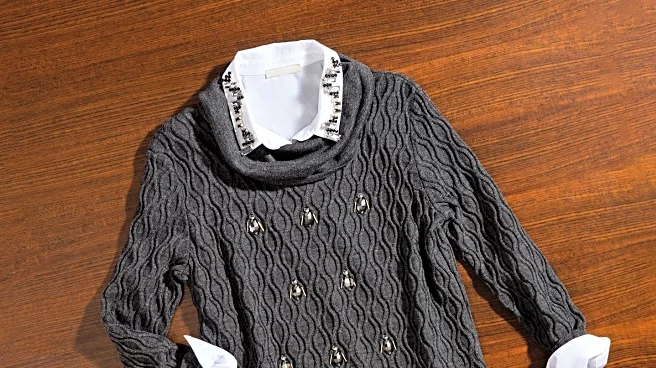What's Happening?
A Reddit user, known as u/sarabellproductions, shared their surprising find of a high-end fashion item priced at just $5 at a local Goodwill store. The item, a mid-length skirt from the luxury brand Cult Gaia, originally retailed for $2,689. The post, shared on the r/thriftstorehauls community, quickly gained traction with over 3,000 upvotes and numerous comments. The skirt was found in pristine condition, with a non-returnable tag indicating it had not been worn or damaged. The discovery sparked admiration and scrutiny among Reddit users, with many sharing their own thrift store success stories. However, the post also led to discussions about retail pricing and manufacturing ethics, with some questioning the high original price of the skirt, especially given its overseas production.
Why It's Important?
This event highlights the ongoing interest and engagement in thrift shopping, where consumers seek high-value items at significantly reduced prices. It underscores the appeal of finding luxury goods at thrift stores, which can offer consumers access to high-end fashion without the typical financial burden. The discussions around pricing and manufacturing ethics reflect broader concerns about the fashion industry's practices, including the justification of luxury pricing and the conditions under which items are produced. This could influence consumer behavior, encouraging more people to explore thrift shopping as a sustainable and economical alternative to traditional retail.
What's Next?
The conversation initiated by this Reddit post may lead to increased scrutiny of luxury brand pricing and manufacturing practices. As consumers become more aware of the disparities between production costs and retail prices, there could be a push for greater transparency in the fashion industry. Additionally, the popularity of thrift shopping is likely to continue growing, potentially prompting more people to share their finds and experiences online, further fueling the trend.
Beyond the Headlines
The ethical considerations raised by this discovery touch on the broader issue of sustainable fashion. As consumers become more conscious of the environmental and social impacts of their purchases, thrift shopping offers a way to reduce waste and support ethical consumption. This trend may encourage brands to reassess their pricing strategies and production methods to align with consumer expectations for sustainability and fairness.









